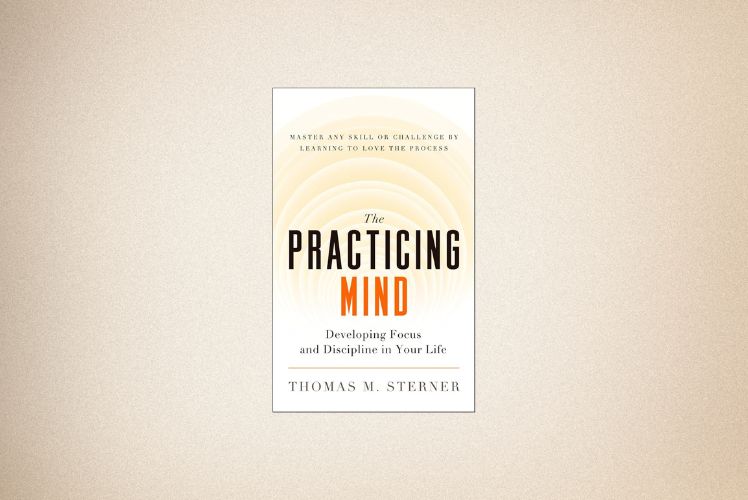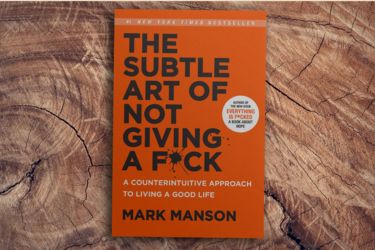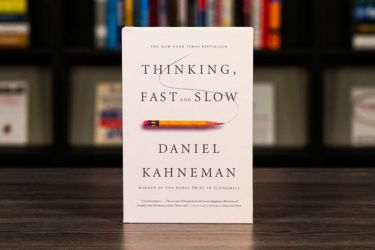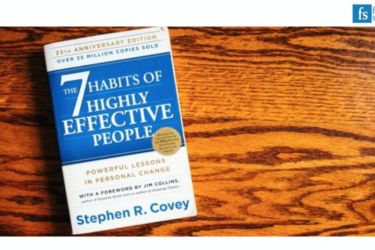In our fast-paced world, it's easy to get lost in the chase for results, often overlooking the journey that leads us there. Thomas M. Sterner's book, "The Practicing Mind," offers us a refreshing perspective on how focusing on the process can transform our approach to learning and self-improvement. Through practical insights and relatable examples, Sterner encourages us to cultivate patience and presence, shifting our mindset from outcome-driven goals to meaningful practice.
By embracing a process-oriented approach, we can overcome frustration and develop a deeper connection with our efforts. This book is not just for musicians or athletes; it speaks to anyone looking to enhance their skills in various aspects of life. Sterner's teachings invite us to appreciate each moment of practice, turning potential struggles into opportunities for growth.
As we explore the key concepts from "The Practicing Mind," we will uncover how to apply these principles in our daily lives, reinforcing the idea that progress comes from consistent practice rather than fixating on results.
Key Takeaways
- Focusing on the process helps develop patience and resilience.
- Overcoming inner dialogue is crucial for self-improvement.
- Sterner’s insights apply to all areas of life, not just specific skills.
Overview of The Practicing Mind
In this section, we will explore the core ideas, structure, and target audience of The Practicing Mind by Thomas M. Sterner. The book highlights the value of mindfulness in practice and how it can lead to growth and achievement.
Summary of Key Concepts
The Practicing Mind teaches that focusing on the process of practice is more important than the end goal. Sterner emphasises that practice helps form habits and discipline, which are crucial for success. He introduces concepts like "Do, Observe, Correct," which encourages active engagement and continual improvement. We learn that the act of practising itself can be rewarding and fulfilling. Mindfulness plays a significant role throughout the book, guiding us to be more aware during our practice. This awareness helps us to overcome frustrations and distractions, leading to better outcomes in various aspects of our lives.
Structure and Style of the Book
The book is organised into concise chapters, each addressing a different aspect of the practising mindset. Sterner uses clear language and practical examples drawn from his own experiences as a musician and teacher. This makes the content relatable and easy to grasp. He often includes anecdotes and exercises for readers to apply immediately, fostering engagement. The writing style is straightforward, allowing us to digest complex ideas easily. There’s also an audiobook version, which provides flexibility for those who prefer listening over reading. The structure is designed for both beginners and those looking to deepen their understanding of focused practice.
Intended Audience and Purpose
We find that The Practicing Mind is aimed at a diverse audience. It appeals to musicians, artists, athletes, and anyone striving to improve skills in daily life. Sterner’s purpose is to guide us in cultivating patience and focus through deliberate practice. He wants us to recognise that success stems from our commitment to the process rather than fixating solely on outcomes. The book serves as a motivational tool, helping us overcome frustrations and foster a growth mindset. By emphasising community and mentorship, Sterner also advocates for support among like-minded individuals.
Thomas M. Sterner’s Approach to Practice
In our exploration of Thomas M. Sterner's methodology, we uncover how he emphasises the importance of the process rather than the final result. This approach invites us to cultivate focus, patience, and discipline as we navigate our goals and skills.
The Importance of Process Over Product
Sterner argues that focusing on the journey is more valuable than fixating on the outcome. By embracing the process, we allow ourselves to learn and grow more effectively. This concept encourages us to engage fully with the task at hand, eliminating distractions related to the end goal.
To illustrate this, Sterner suggests that we should practise skills regularly and mindfully. This may mean setting aside time each day to engage in deliberate practice. As we do this, our abilities will gradually improve, leading to more satisfying results over time.
Insights from Personal Experience
In his own journey, Sterner faced challenges in mastering his craft. He discovered that a focus on achieving specific outcomes often led to frustration. Instead, he learned to appreciate each moment of practice, which transformed his mindset.
Sterner’s experiences resonate with many of us. For example, when we learn a musical instrument, we often become discouraged if we do not master a piece quickly. By shifting our attention to the practice itself, we can find joy in the progress we make, no matter how small.
Process-Oriented Mindsets
Adopting a process-oriented mindset involves recognising that mastery takes time and effort. Sterner encourages us to develop patience and discipline in our pursuits. This mindset also fosters resilience, helping us to overcome obstacles along the way.
To cultivate this mindset, we can implement daily routines that emphasise consistent practice. Keeping track of our progress, setting achievable goals, and reflecting on our experiences can also reinforce this focus. Engaging with our practice in this way not only enhances our skills but also enriches our overall experience.
Cultivating Focus and Presence
To enhance our ability to focus and be present, we can adopt specific strategies. These approaches help us slow down and appreciate the process, which can lead to improved performance and satisfaction.
Practising Mindfulness During Tasks
Mindfulness involves being fully engaged in our current activity. It allows us to observe our thoughts without judgment. To practise mindfulness, we can start by setting aside a few minutes for meditation before tasks.
Steps for Mindful Task Engagement:
- Clear Distractions: Minimise noise and interruptions.
- Breathe Deeply: Focus on our breath for a few moments.
- Set an Intention: Decide what we want to accomplish during the task.
While working, we can remind ourselves to stay present by frequently checking in with our thoughts and feelings. When distractions arise, it’s important to gently guide our focus back to the task. This practice builds our ability to concentrate and improves our overall experience.
Slowing Down for Enhanced Performance
Slowing down may seem counterintuitive, but it can significantly improve our focus and effectiveness. When we take our time, we engage deeply with our work, which allows for better retention of information and skill development.
To cultivate this habit, we can adopt the following strategies:
- Chunk Tasks: Break tasks into smaller, manageable parts.
- Schedule Breaks: Plan short breaks to recharge our mind.
- Embrace the Process: Focus on each step rather than fixating on the end goal.
By slowing down and embracing the process, we foster a sense of presence. This not only enhances our productivity but also makes our work more enjoyable. By practising these techniques, we can develop a sustainable approach to mastering skills and achieving our objectives.
Patience and Discipline in Self-Improvement
In our journey of self-improvement, patience and discipline serve as foundational elements. They help us stay focused and committed to our goals, ultimately facilitating meaningful progress. By cultivating these traits, we become better equipped to face challenges and learn from our experiences.
Developing Patience Through Practice
Practising patience involves learning to accept that progress takes time. We often want immediate results, but meaningful change often unfolds slowly. By engaging in mindfulness and deliberate practice, we can train ourselves to be more accepting of the process.
To enhance our patience, we can try techniques such as:
- Setting Small Goals: Breaking our larger goals into smaller, achievable tasks can help us see progress more easily.
- Mindfulness Meditation: This practice encourages us to focus on the present moment, which can reduce impatience.
- Reflecting on Progress: Keeping a journal to record our progress can help us appreciate the time it takes to improve.
Through consistent practice, we can transform the way we perceive time and results.
Building Consistent Discipline
Discipline is about creating habits that support our self-improvement. It helps us stick to our commitments even when motivation wanes. Consistency is key when developing discipline, and simple strategies can make a significant difference.
Here are some practices to help us maintain discipline:
- Establish a Routine: A daily schedule helps us prioritise our activities and build a sense of responsibility.
- Eliminate Distractions: Identifying and removing distractions, both physical and digital, can keep us focused on our tasks.
- Reward Ourselves: Celebrating small victories reinforces our efforts and encourages us to stay disciplined.
By implementing these strategies, we create an environment that fosters discipline and supports our continuous development.
The Role of Progress in Growth
Tracking progress is essential for our growth. It allows us to see how far we’ve come and highlights areas that need improvement. Recognising progress boosts our confidence, motivating us to keep going.
To effectively measure our progress, we can:
- Use Metrics: Establishing clear metrics for our goals helps us quantify our progress.
- Seek Feedback: Receiving constructive feedback from others provides valuable insights into our development.
- Reflect Regularly: Taking time to reflect on what we’ve learned can deepen our understanding and guide our future efforts.
As we recognise our progress, we build the patience and discipline necessary for sustained self-improvement.
Overcoming Frustration and Internal Dialogue
In our journey towards mastering any skill, we often encounter frustration and unproductive internal thoughts. By learning how to manage our expectations, reframe our frustration, and shift our internal dialogue, we can create a more supportive environment for growth and improvement.
Managing Expectations and Impatience
Frustration often arises when our expectations do not align with reality. We need to remind ourselves that mastery takes time and practice. Breaking our goals into smaller, achievable tasks helps manage our expectations.
When we set realistic timelines, we reduce the pressure we put on ourselves. This shift allows us to embrace the trial and error process rather than viewing it as failure. Recognising that impatience can hinder our progress is crucial. We should celebrate small victories, as these build our confidence and motivation.
Reframing Frustration as Feedback
Instead of seeing frustration as a negative experience, we can view it as valuable feedback. Each moment of discomfort can teach us something about our approach or abilities.
When we feel frustrated, we should pause and ask ourselves what we can learn from the situation. Is there a different method we haven’t tried? Are our skills aligned with the task at hand? By reframing frustration this way, we open ourselves up to new strategies and insights.
This mindset shifts our focus from just reaching goals to truly engaging with the learning process. Embracing this feedback allows us to grow more effectively and builds a resilient approach to challenges.
Shifting the Internal Dialogue
Our internal dialogue plays a significant role in how we respond to frustration. Negative self-talk can lead to a defeatist mindset, making us feel stuck or overwhelmed.
We need to cultivate a constructive inner voice. Instead of saying, "I can't do this," we can replace it with, "What can I learn from this challenge?" This subtle change reinforces a growth mentality.
Practising mindfulness can also help us become more aware of our thoughts. We should regularly check in with our internal dialogue and adjust it as needed. Keeping a journal can be beneficial for tracking patterns in our thoughts. By shifting our internal dialogue, we empower ourselves to navigate obstacles with a positive attitude.
Applying The Practicing Mind Principles
We can implement the principles from "The Practicing Mind" to enhance our skills and embrace the learning process. By focusing on manageable steps, consistent practice, and embracing trial and error, we become more mindful and intentional in our journey of self-improvement.
Breaking Down Goals into Manageable Steps
To make progress, we need to break our larger goals into smaller, achievable tasks. This makes our focus sharper. For example, if we aim to learn a musical instrument, we can start with simple scales or a single song.
Instead of saying, "I want to be a great guitarist," we might set daily goals like "practice for 30 minutes" or "master one chord." This approach helps us track our progress and adjust our methods. By celebrating these smaller achievements, we stay motivated and reduce the overwhelm that often comes with big goals.
Implementing Practices in Everyday Life
Integrating deliberate practice into our daily routines is essential. We can set aside specific times for focused practice to build consistency. For instance, if we commit to reading for 20 minutes each day, we gradually absorb more knowledge.
We can also use reminders and create a conducive environment for practice. Simple changes, such as eliminating distractions, can make our practice sessions more effective. Incorporating these practices into our lives allows us to build habits that promote sustained growth, making it easier to stay dedicated to our goals.
Learning from Trial and Error
Trial and error is a crucial part of the learning process. When we make mistakes, we gain valuable insights that guide our improvement. Each setback offers a chance to reassess our approach and adapt accordingly.
We should embrace failures as learning opportunities. For example, if a technique isn't working for us, we can analyse what went wrong and try a different method. Keeping a practice journal can help us reflect on our experiences and track our progress over time. This strategy fosters resilience and encourages us to keep pushing forward, knowing that every attempt brings us closer to mastery.
The Lasting Impact of Process-Oriented Living
Adopting a process-oriented mindset significantly affects our lives. It encourages patience and fosters a healthy approach to growth and fulfilment. By focusing on the journey rather than merely the end result, we set ourselves up for lasting benefits.
Benefits for Long-Term Wellbeing
Living with a process-oriented approach helps us cultivate patience. Instead of rushing toward outcomes, we recognise that growth takes time. This shift in thinking reduces stress and anxiety related to achieving specific goals.
Moreover, by enjoying the present moment, we enhance our mental and emotional health. Engaging fully with our tasks creates a sense of satisfaction. We become more resilient to setbacks. This resilience is vital for our overall wellbeing.
A process-oriented mindset also encourages us to appreciate small victories. Celebrating progress, no matter how minor, can boost our motivation and confidence.
Continuous Growth Through Presence
Focusing on the present moment allows us to stay engaged in our activities. This engagement leads to continuous growth and improvement. When we are fully absorbed in the process, we learn to adapt and refine our skills.
Additionally, we build a stronger relationship with our work. Understanding that progress is a series of steps helps us appreciate each stage. This can lead to increased creativity and innovation, as we can freely explore without the pressure of immediate success.
A process-oriented mindset transforms our journey into a meaningful experience. We become more open to learning, allowing us to grow in ways we may not have anticipated.
Frequently Asked Questions
In this section, we will address common queries about The Practicing Mind. This will cover the core ideas, techniques for improving focus, and its applications in various areas of life. Let’s explore the frequently asked questions together.
What are the core principles outlined in 'The Practising Mind'?
The book emphasises the importance of focusing on the process rather than the end result. It encourages us to practice patience and mindfulness in our daily activities. We learn that our frustrations often arise from fixating on goals instead of enjoying the journey of learning and improvement.
How does Thomas M. Sterner propose we enhance our focus and presence?
Sterner suggests that we cultivate awareness in everything we do. By being present in our practice, we can greatly enhance our focus. Techniques such as deep breathing and mindfulness exercises can also help us to stay grounded and attentive to the task at hand.
What specific techniques are suggested in the book for mastering skills?
The author advocates for a methodical approach to practice. This includes setting aside dedicated time for skills development and breaking tasks into manageable steps. He also highlights the importance of reflection and self-assessment to track our progress and adjust our methods as needed.
Can 'The Practising Mind' be applied to both personal and professional development?
Yes, the concepts in this book are versatile and can be applied in various contexts. Whether in personal hobbies or professional skills, the focus on the process can lead to meaningful growth. We can benefit from Sterner's insights in any area that requires skill-building and continuous improvement.
In what ways does 'The Practising Mind' differ from other books on mindfulness and skill acquisition?
Unlike many other books, Sterner places a strong emphasis on the act of practice itself. He focuses less on achieving a specific goal and more on the joy and learning that comes from the process. This approach sets it apart from others that may concentrate primarily on mindfulness or goal-setting techniques.
What are the critiques commonly associated with 'The Practising Mind'?
Some readers feel that the ideas may seem repetitive at times. Others suggest that certain examples might not resonate with everyone, particularly those unfamiliar with music or sports. Despite these critiques, many still find value in the core messages about focus and practice.





















